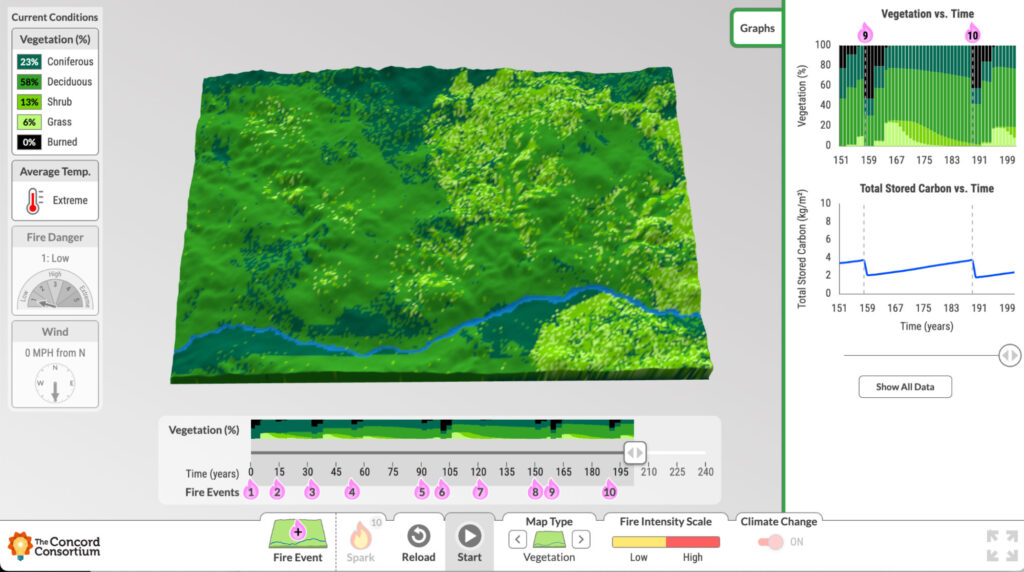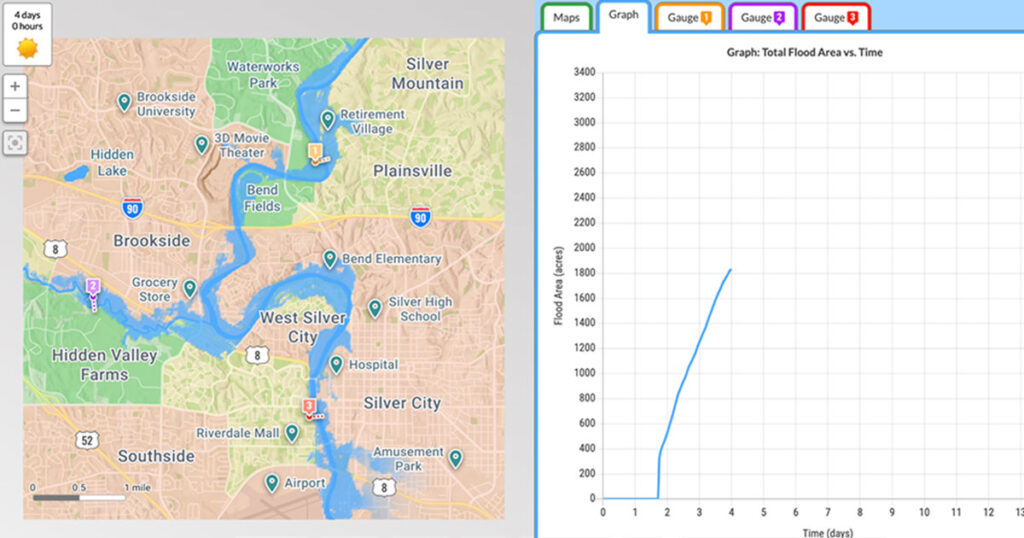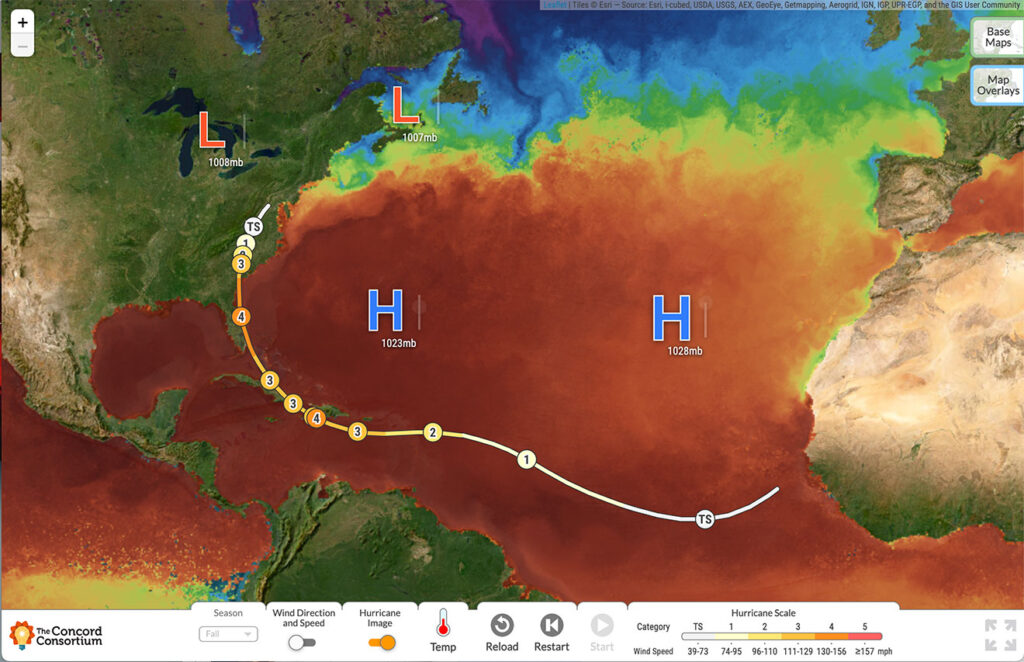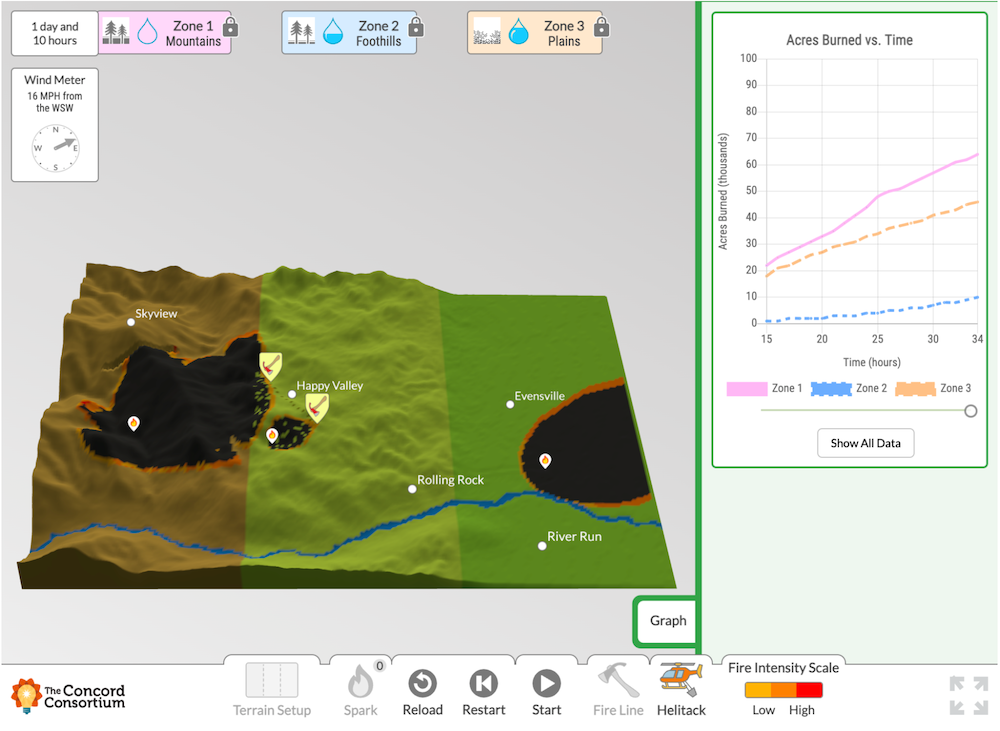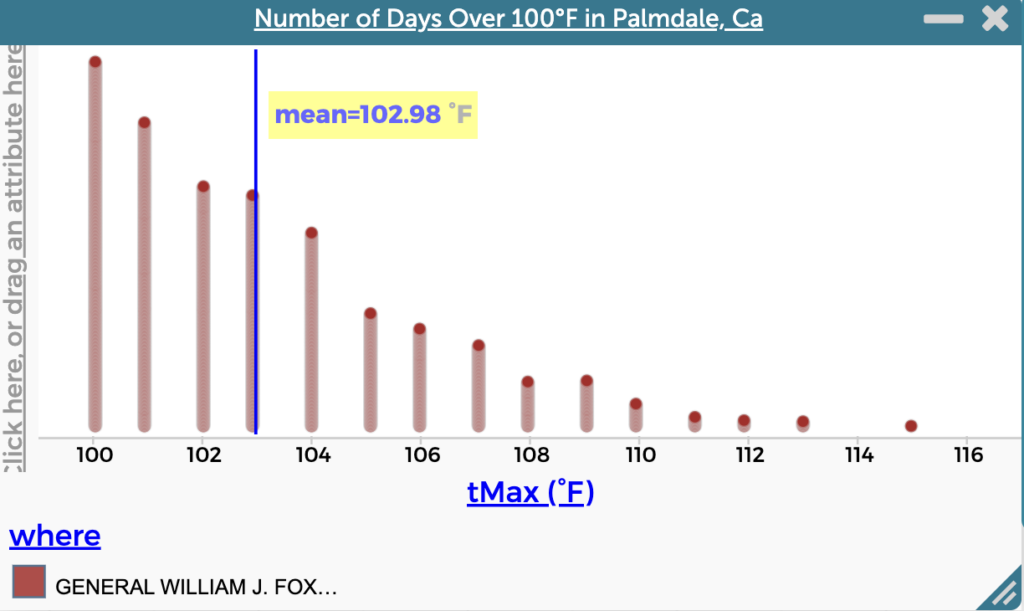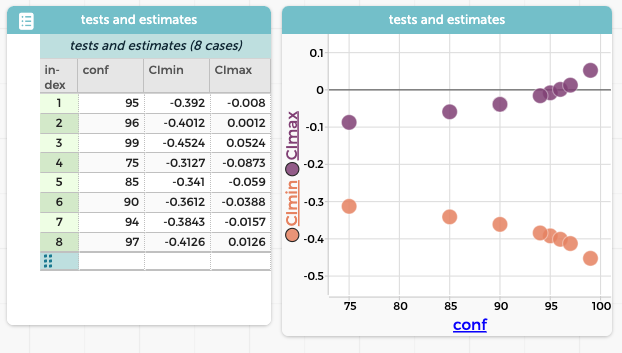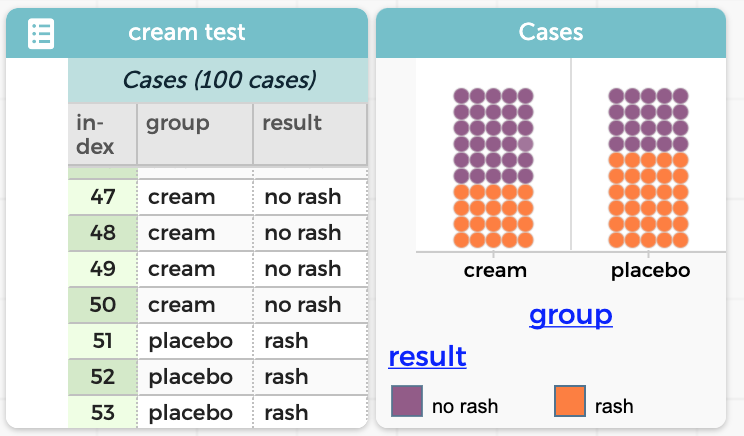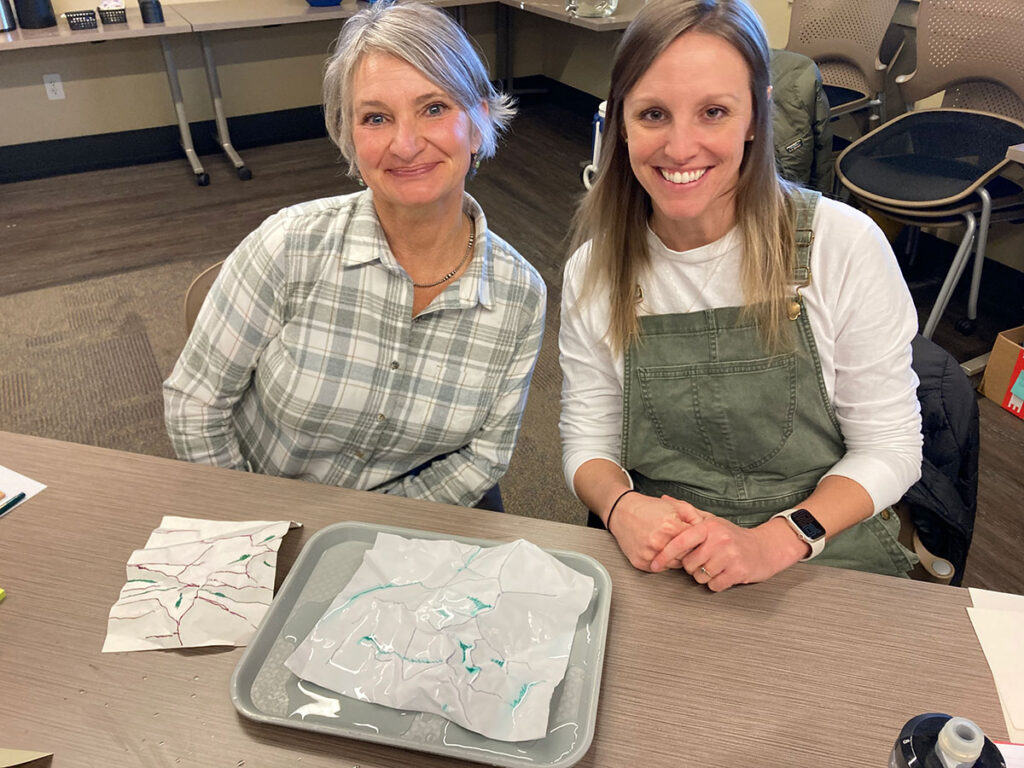Massive amounts of Earth’s stored carbon is located in boreal forests, including those in northern Canada and Alaska. As temperatures rise and wildfires become more frequent, scientists are studying the boreal forest’s transformation from carbon sink to carbon source. We partnered with Dr. Brian Buma at the University of Colorado Denver and the Environmental Defense […]
Stephanie Harmon is a Science Consultant with the Partnership Institute for Math and Science Education Reform (PIMSER) in Kentucky. Previously, she taught Earth science and physics at Rockcastle County High School in Mount Vernon, Kentucky, and has consulted on several Concord Consortium projects. For my students in rural Kentucky, floods are personal. In July 2022, […]
Michael Focht is a middle school teacher in Titusville, Florida, and field tested our GeoHazard modules. Do the names Matthew, Nicole, Ian, or Irma give you pause? Are they long-lost cousins? Friends from high school? For the students in my middle school science classes, these are the names of hurricanes that have impacted them over […]
Turn on the news and you’ll see horrific images of flames enveloping hillsides, engulfing homes, and destroying entire communities. This year’s wildfire season is on track, once again, to be one of the worst in history. The number of acres burned in California in August 2024 is already more than double the number of acres […]
Leticia Perez is a Senior Professional Learning Specialist at WestEd. Frieda Reichsman is a Senior Research Scientist at the Concord Consortium. Headlines make the news all the time warning of warmer winters, changing seasonal patterns, life-threatening heat, or alternately dangerous freezing conditions. Whether you’re in Massachusetts or California, or somewhere in between, nearly everyone has […]
Tim Erickson is an educator focusing on mathematics, physics, and data science; a consultant on several data science projects; and the author of Awash in Data. Not long ago, I wrote a blog post about using the scrambler to do randomization-based inference. In that post, I suggested that we could also do traditional inference in […]
Tim Erickson is an educator focusing on mathematics, physics, and data science; a consultant on several data science projects; and the author of Awash in Data. CODAP is great for exploring data. You can make graphs and do cool data moves, such as filtering, grouping, and summarizing your data. You can download data from public […]
The WATERS (Watershed Awareness using Technology and Environmental Research for Sustainability) project recently ended with a Master Teacher Workshop at our Concord office for selected teachers who participated in the National Science Foundation (NSF)-funded research with excellence and enthusiasm. The goal of the workshop was to exchange best practices for teaching the now freely available, […]
At the Concord Consortium, 12 of our research scientists are Principal Investigators or Co-Principal Investigators* on our dozens of National Science Foundation-funded projects. We polled our Principal investigators and their project managers to find out what it’s like to run a successful research and development project. Below are their top ten tips. 1. Like most […]
We are delighted to announce that Bridget Druken has been awarded our Robert F. Tinker Fellowship for 2024. Describing her background, Druken begins, “I loved all my classes and subjects in high school.” She then adds, “but really admired my math teachers.” She smiles as she runs down their list of names. She credits one […]
